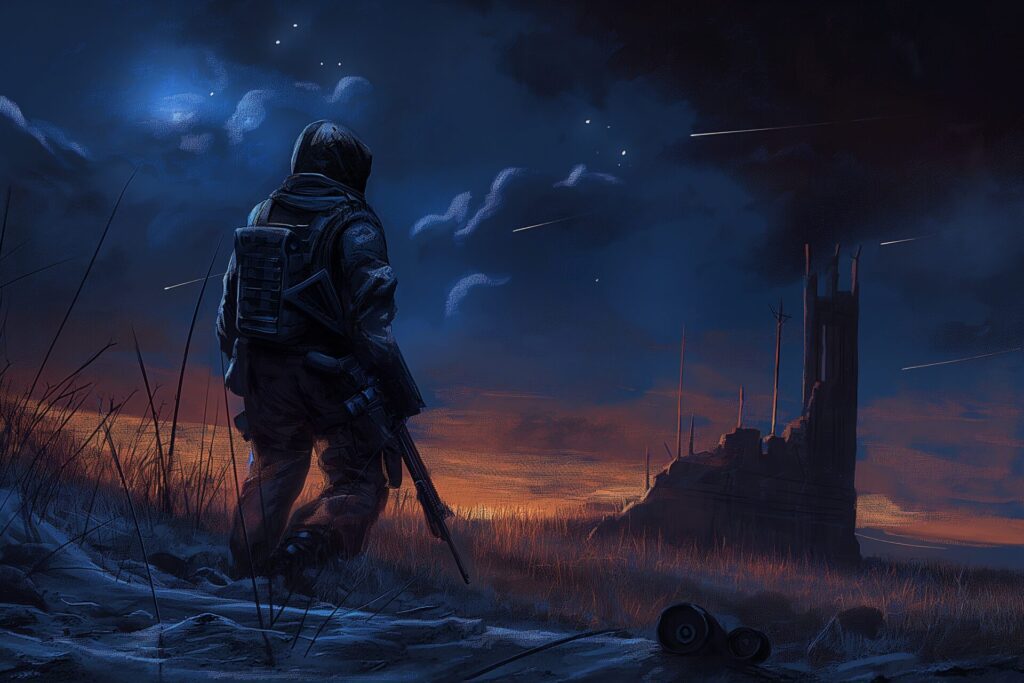5 Tips on Writing: With Thomas Demetriou
My name is Thomas (Tommy) Demetriou. Since I was a child, the art of storytelling has been a part of my life. It all began on stage, where I have been performing for as long as I can remember. Being a part of these amazing stories, seeing characters come to life and bringing smiles to the faces of the audience, that is what gave me more joy than anything. My writing started small with short stories I wrote just for myself. Thinking of “what-if” scenarios of my favorite plays and TV shows.
It then branched out to concept writing for videogames I wanted to see made. And finally, it all culminated when I was introduced to Dungeons and Dragons. Once I played my first session, everything changed. Grand adventures, epic battles, the comradery of everyone at the table, I knew that was my calling, and I quickly took up the position of Dungeon Master. I have been telling stories for over half a decade now, and I still have so many more adventures to craft!
Hooking Your Audience
From my experience, people like when things are big and bold. The turning points of your story need to hit hard. The opening and closing, especially, should explode off the page, or screen, or whatever medium it is you prefer. When you know it is time for things to ramp up in your story, really show off, make your viewer feel like they are a part of the world they are witnessing.
While this may sound a touch vague, I do so on purpose because every story is unique, and there is so much detail that needs to be taken into consideration for scenes such as this. If you want your viewer to be sad, then really make the scene tragic. If you want them to feel empowered, then show everyone rejoicing at the triumph of your hero. There is so much you can do, and I know, at least in my experience, that they love it when you drive the scene home.
Mastering Plot Development
Consequences. Now, that is not to say you need to show how every single character or faction is reacting to certain events, but major players at the very least. A plot altering moment should at least hint at what is brewing for other primary characters.
Simply moving on to the next point can give just a bit of whiplash to viewers, and we want to avoid that. Plus, not only does showing consequences make your world feel more alive, but it teases the viewer for what you have planned next.

Effective World-Building Strategies
As a Dungeon Master, I have designed my fair share of worlds, and there are two aspects that really help me flesh them out: rules and history of the mundane. Firstly, rules. Every world has rules, and when you are designing new ones, establish a set of rules that they must abide by. When you do so, it not only helps viewers understand how your world works, but it forces you to think through new ideas slower. This way, you are less likely to accidentally create a plot hole and/or retcon.
Secondly, history of the mundane has added so much depth to my stories. The reasoning behind a major war, or economic crash, or any other major threat will need to be addressed at some point for plot sake. But, when expanding your world, ask yourself questions about the things you did not think needed explaining. For example, if there is a dessert on your continent, you can ask yourself questions like: “was it always a dessert?”, “why is it in this location specifically?”, “what happened to make it a wasteland?” Questions such as these can spark so much creativity.
Techniques for Character Development

Showing character development is especially tricky, because, again, everyone has their own unique story. Some prefer the more nuanced and “show don’t tell” method of character development. While others prefer certain aspects of a character’s journey to be stated plainly. Both methods can be used in tandem and effectively, it all depends on you and your viewers.
But, in a more general sense, I personally prefer to have moments that are very specific in showing off how a character has changed a particular part of themselves. Whether someone is describing them, or the scene simply plays out and shows the audience, be clear about what has changed. In essence, I supposed I would say “be blatant, but be natural.”
Crafting Meaningful Decisions

As a Dungeon Master, this one is particularly close to my heart. When working an interactive medium, it is impossible to implement consequences or branching paths for every single choice that can be made. But, here is what has worked for me. The first thing I do is have the finale of my story set in stone, a sort of “singularity” if you will.
Now, while that does sound like eliminating choice, I have found that it opens up the story for far more interactivity. I say this because of what I do next. I choose a specific set of factors that can be altered however the player or audience decides. Though the path may end at mostly the same point, the journey will be vastly altered for different people, and a handful of details will still make the ending unique for the individual.
Thomas's Work & Experience
My greatest strength is in presentation. When I wrote about those moments where you want to go big and bold, those are the times I live for. The scenes that build so much pressure amongst the audience that you can feel like. The reveal of a major clue, a heartbreaking betrayal, the final strike of a grand battle, making those moments come to life is where I shine.
That is why I love finales so much. Be them series, season, or even just the finale of a character’s personal arc, I live for it all. My goal and love is to “bring the house down.”
Writing & Narrative Design Skills
Commercially speaking, I am still forging my path. There are so many universes and narratives that I dream to be a part of, so many hearts I know my stories can reach, I just have to get there. I know I am on my way, and for now I will continue to practice and improve however I can.
Exploring Favorites
Without a doubt, one of my favorite stories is Disney’s Hercules. I am a sucker for a good, old fashioned hero’s tale. Seeing the ambitious protagonist grow and become a true hero just hits so close to home. That movie displayed such a simple, yet incredibly powerful side of humanity that all of us feel deep down.
The want to be better than we are, to make a difference, and to be remembered fondly for our deeds. The concept of the hero is one very dear to my heart, and is one I still love to pick apart and experience through different interpretations, and this movie gave me a wonderful lesson in what it means to be one.
A Wish for Interactive Audio Stories
I, like many others, was swapped up in the wave of fun that was Baldur’s Gate 3. The way it told such unique stories in the established Forgotten Realms was nothing short of art. The game not only provided moving and intense scenes, but also left so much room for individualism and speculation.
The life of a random villager seemed interesting in this game. An interactive audio story of a whole new character, or even the lives of origin characters such as Karlach, Wyll, and Astarion would be such an incredible experience
Register for our Free Writing Workshop now!
If you are interested in creating your own interactive audio story, you can apply for our free webinar! It will introduce you to our interactive story game engine, TWIST, and teach you how to use it to create interactive audio stories.
Interested in contributing to our blog series?
If you would also like to publish a blog post on our website and share your own story with interested readers, simply fill out the contact form.





